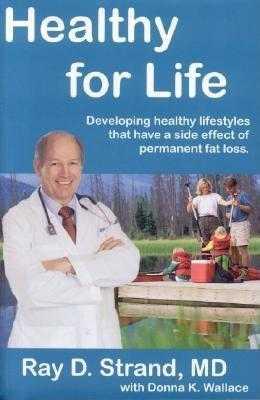Explore the World's Best Ideas
Join today and uncover 100+ curated journeys from 50+ topics. Unlock access to our mobile app with extensive features.
Tips for maintaining health.
Everyone knows that eating a balanced diet, exercising and getting plenty of rest are key to maintaining good health. However, that can seem to be an impossible task while in college. Frequently, the appeal of sweets, fast food, caffeine and alcohol outweigh healthy options when you’re in the company of friends or under stress from coursework. Here are some tips for staying healthy in spite of your college lifestyle.
83
928 reads
Methods maintain health
- Nutrition
Eat a variety of nutrient rich foods. Your body actually needs more than 40 different nutrients for good health, and there is not one single source for them. Your daily food selection should include a balance of good carbs, protein, fruits, veggies, and dairy products. Check out the food guide from the USDA at mypyramid.gov.
80
850 reads
Diet
Eat moderate portions. If you keep portion sizes moderate and reasonable, it is easier to eat what you want, and maintain a healthy and balanced diet. What’s a moderate portion? A medium-sized piece of fruit is one serving. A cup of pasta equates 2 servings and a pint of ice cream contains 4 servings.
79
767 reads
Do not skip meals
DO NOT SKIP MEALS. Skipping meals can lead to out-of-control hunger and frequently results in over-indulging. Snacking between regular meals can help if you are pressed for time. Just make sure you have at least two balanced meals.
81
764 reads
Eliminating certain foods
DO NOT eliminate certain foods. Because our bodies require diverse nutrition, it’s a bad idea to eliminate all salt, fat, and sugar from our diets, unless told to do so by a medical professional. Choosing healthier options such as skim or low-fat dairy will help you maintain a balanced diet.
79
718 reads
Water
Stay away from cokes and other sugary sodas, which can pack as much as 17 teaspoons of sugar per 20oz drink! Sugar is a source of empty calories that can use up important vitamins and minerals in your body. Water helps not only to hydrate, but to aid in blood circulation, the removal of toxins from our bodies and in the regulation of our body temperatures.
81
675 reads
Coffee ☕
Avoid too much caffeine. Caffeine is a mildly addictive drug that can affect your ability to sleep and focus while also affecting such bodily functions as muscle function and the cleansing of waste products.
78
703 reads
Fitness
To be active
- Use the stairs instead of the elevator.
- Get at least 30 minutes of activity every day. If the idea of sweating at the gym for hours on end doesn’t sound appealing to you, then head outside for a game of ultimate Frisbee. Or, try going for a walk or a run. The important thing is that you get moving!
83
828 reads
Relaxation
- Keep yourself organized to eliminate unnecessary and preventable stress.
- Turn off the TV and listen to music.
- Make time everyday, even if it’s just 15 minutes, for relaxation and reflection.
- Get plenty of sleep.
- Allow at least 30 minutes of quiet relaxing activity before bed at night, e.g. reading.
- Resist the temptation to use sleeping pills, when under the stress of writing papers, studying, etc.
- Sleep is not a waste of time! It’s as important and necessary as nutrition and exercise.
96
682 reads
Socially healthy
Get involved and meet people in a positive environment. Often the adjustment to college can be difficult, especially when students are leaving the support system they have known for a lifetime. Whether it’s participating on a sports team or in Rhodes Student Government, joining a religious organization, volunteering at the soup kitchen, or helping in some other form, helping others helps us. The most important thing to remember is to find something you are interested in and enjoy yourself
82
553 reads
Variety foods
For good health, we need more than 40 different nutrients, and no single food can supply them all. It is not about a single meal, it is about a balanced food choice over time that will make a difference!
- A high-fat lunch could be followed by a low-fat dinner.
- After a large meat portion at dinner, perhaps fish should be the next day’s choice?
79
558 reads
Rich in carbohydrates
About half the calories in our diet should come from foods rich in carbohydrates, such as cereals, rice, pasta, potatoes, and bread. It is a good idea to include at least one of these at every meal. Wholegrain foods, like wholegrain bread, pasta, and cereals, will increase our fibre intake
77
558 reads
Saturated and unsaturated fats
Fats are important for good health and proper functioning of the body. However, too much of it can negatively affect our weight and cardiovascular health. Different kinds of fats have different health effects, and some of these tips could help us keep the balance right:We should limit the consumption of total and saturated fats (often coming from foods of animal origin), and completely avoid trans fats; reading the labels helps to identify the sources.
75
518 reads
Beverages
Fruits and vegetables are among the most important foods for giving us enough vitamins, minerals and fibre. We should try to eat at least 5 servings a day. For example, a glass of fresh fruit juice at breakfast, perhaps an apple and a piece of watermelon as snacks, and a good portion of different vegetables at each meal
78
543 reads
Imtake of salt and sugar
A high salt intake can result in high blood pressure, and increase the risk of cardiovascular disease. There are different ways to reduce salt in the diet:
- When shopping, we could choose products with lower sodium content.
- When cooking, salt can be substituted with spices, increasing the variety of flavours and tastes.
- When eating, it helps not to have salt at the table, or at least not to add salt before tasting.
76
518 reads
IDEAS CURATED BY
R. Mahesh khanna's ideas are part of this journey:
Learn more about books with this collection
Effective communication
Persuasion techniques
Closing a sale
Related collections
Discover Key Ideas from Books on Similar Topics
2 ideas
Pros and Cons of the Mediterranean Diet
verywellfit.com
5 ideas
Five types of food to increase your psychological well-being
theconversation.com
2 ideas
Read & Learn
20x Faster
without
deepstash
with
deepstash
with
deepstash
Personalized microlearning
—
100+ Learning Journeys
—
Access to 200,000+ ideas
—
Access to the mobile app
—
Unlimited idea saving
—
—
Unlimited history
—
—
Unlimited listening to ideas
—
—
Downloading & offline access
—
—
Supercharge your mind with one idea per day
Enter your email and spend 1 minute every day to learn something new.
I agree to receive email updates

